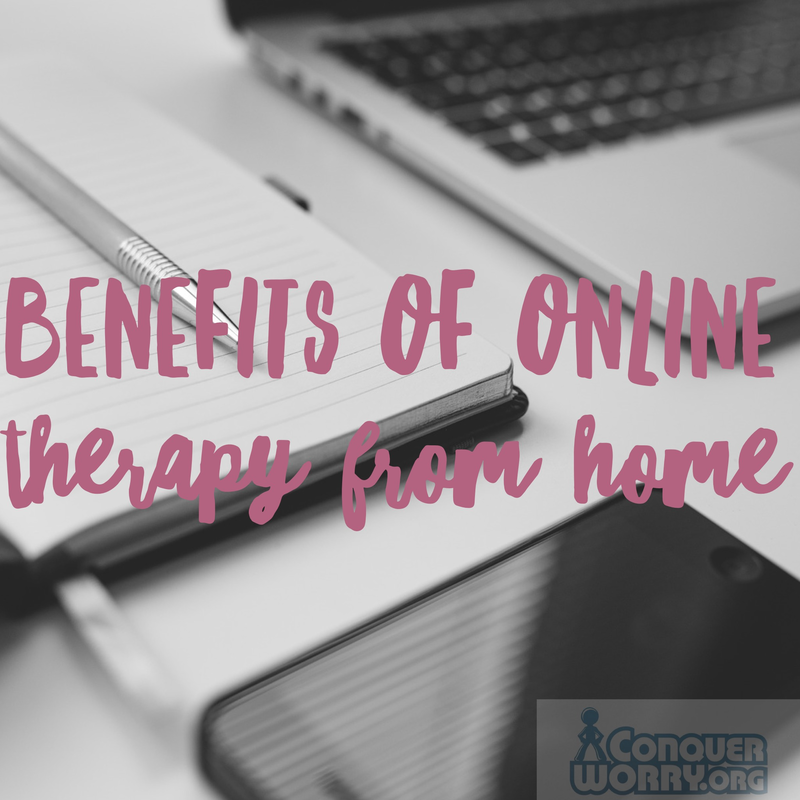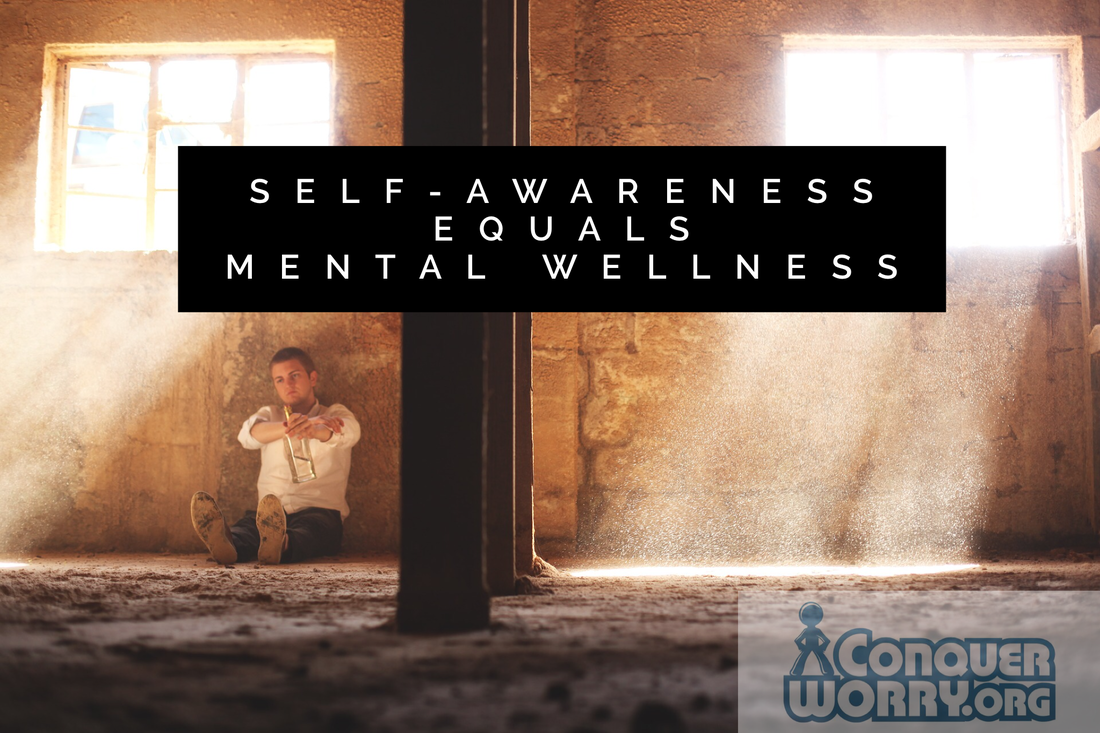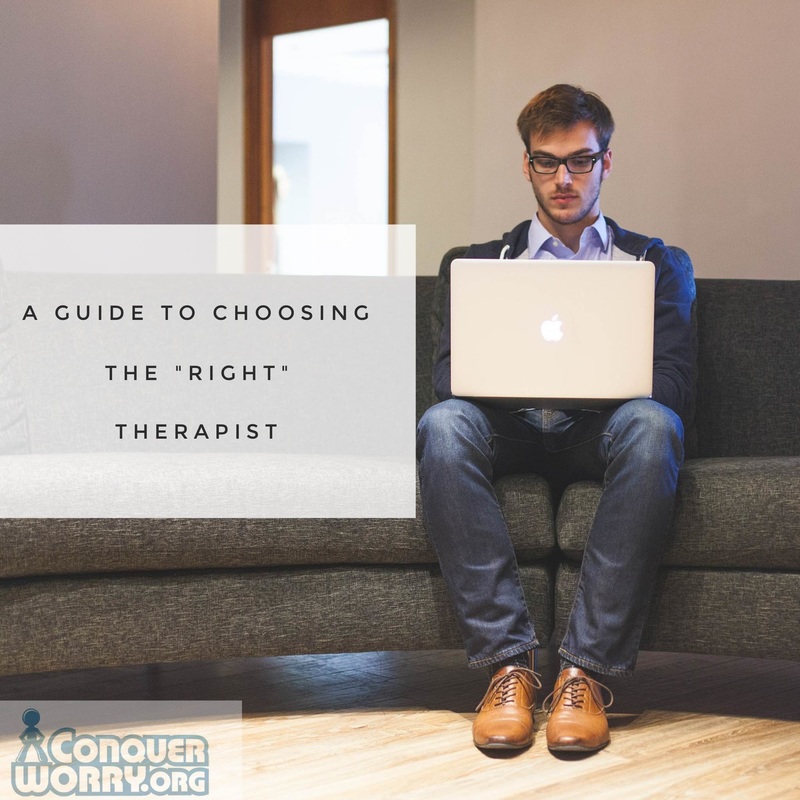|
Article by Irving Schattner Post design and edit by Christy Zigweid Photo by Unsplash via Pixabay made using @WordSwagApp As technology continues to innovate and connect people seamlessly via smartphones, tablets, and laptops, it has become easier to get help for emotional/psychological problems. The advent of online therapy from the comfort and security of home allows trained psychotherapists to assist clients regardless of their physical location. All that’s needed is an internet connection to conduct online therapy sessions. There are many reasons to choose online therapy over traditional in-office counseling. Often it may be difficult to arrive at the therapist’s office because of your remote location or transportation problems. With online therapy, you never have to leave the house and get to reap all of the benefits of face-to-face sessions. Online therapy is less intimidating with less stigma attached, and you can choose between having a single session to try it out for ongoing therapy. It is entirely possible to engage in online counseling with a trained psychotherapist from home, work, or even while traveling. This method of counseling is generally more affordable than face-to-face therapy sessions, and you get to save on gas without the need of traveling to a therapist’s office. Online therapy offers flexible scheduling to accommodate your schedule. People with physical limitations or a limited ability to travel can benefit greatly from online therapy. If you relocate frequently, it gives you the opportunity to keep the same therapist for a continuum of care. The benefits of online therapy are endless and continue to be discovered as more people make the jump to online counseling. Photo by Picography via Pixabay Effectiveness of Online TherapyThere have been many studies pointing to the fact that video therapy and online counseling are effective tools that help reduce the prevalence of anxiety, depression, and a host of other psychiatric conditions. A peer-reviewed study published in the Canadian Medical Association Journal, took a close look at studies of online cognitive behavioral therapy (CBT) conducted between 2000 and 2012. They found that CBT is a widely used and well-researched form of therapy, with most studies saying face-to-face forms of this treatment are highly effective. CBT focuses on reducing negative thoughts, thereby changing behavior and alleviating symptoms. Most of the studies tracked participants for eight weeks to two years after undergoing online therapy sessions from home. Researchers conclusively found that online cognitive-behavioral therapy could effectively reduce symptoms of depression, anxiety, and other mental health issues. In some cases, online therapy was even more effective than traditional in-office therapy. The evidence supporting online therapy’s effectiveness is significant and continues to grow. About the Author - Irving Schattner, LCSW
15 Comments
Article by Irving Schattner Edit and post design by Christy Zigweid Photo by Unsplash via Pixabay made using @WordSwagApp Our brains are constantly working. Neurons are firing and chemicals are released and absorbed, leading to thoughts, emotions, and actions. Whether we are in a state of motion, standing still or sleeping, our brains accommodate to ever-changing circumstances and states of consciousness. As much as we may try to convince ourselves of the need to slow down the process of brain function, there are elements of biology and conditioning that dictate the flow of energy circulating up the spine into our brain and down to our organs. That is a given. What is less of a given is the extent to which we can exercise control over our brain and, therefore, bodily organs. The extent to which we are able to exert conscious control over mind and body can be dictated by a number of factors. One factor is how aware we are of what we think and feel. It is through conscious awareness that we can begin to gain some mastery over how we channel our thoughts, emotions, and actions. “Failure to be aware” leads to automatic thoughts, feelings, and actions that may be counterproductive to our goals. While this may seem an obvious conclusion, many people in distress often find themselves “stuck” in the very patterns which perpetuate and even exacerbate the problems from which they seek freedom. For some in distress, it is more comfortable to accept one’s fate than to examine what influences and motivations keep them from seeking change and joy. Admittedly it is a daunting task to examine that which is hidden from consciousness, and break through the defense mechanisms often used as self-protection. To engage in a process of self-awareness can begin the process of change. If we continue to ignore or avoid what has been brought to our consciousness, we perpetuate self-sabotage. Some believe that motivation is what is needed and continue to wait for motivation that never comes. The stark reality is that motivation is usually achieved by the mere act of doing. The act of doing, or being, may seem at times like an uphill battle, but once undertaken becomes a process through which motivation is reinforced. In other words, one can sit idly by and think about taking action, or one can learn through repeated attempts (trial and error) until success is achieved. Success is best achieved when fear of failure is challenged through opportunities for learning made possible by taking action. By taking action, assessing what went right and what needs to be modified or corrected, one is on the path to adaptive change. Unfortunately, having gained conscious awareness (or understanding), many people in distress often recoil into typical patterns of thinking and behaviors which further reinforce their negative self-image and disbelief in their ability to gain mastery over their distress. The fortunate few, often with the guidance, support, and encouragement of a well-trained mental health professional, are determined to undertake this next phase of action which flows from their newly-discovered awareness. It is my wish for each one of you that you take the necessary steps to move from awareness to action, in order to achieve a life of joy, purpose, and direction. Show the courage to change. Reach out and give me a call so we can explore taking this journey together. The rewards are fantastic! About the Author - Irving Schattner, LCSW
Article by Two Wise Chicks Post design by Christy Zigweid Picture by StartupStockPhotos via Pixabay made using @wordswagapp Mental Health Week is drawing to a close and we are very happy. There is a real shift towards people truly understanding that it is OK to not always feel OK... and that asking for support is OK, too. This change means that people around the world are beginning to not just think - but KNOW - that each of us has feelings, needs and fundamental worth, and that if we are struggling with these things, change is possible. Shame-free, guilt-free change. What to do?! Where to go?! Because we are learning to claim our right to feel better, many more of us are choosing therapy as part of a life-improvement process. But what seems to perplex a lot of people though is how to choose a therapist. So, we've pulled together some helpful guidelines if you or a loved one has decided to see a therapist, psychologist or counsellor (there are some important differences).
What are the things I should be looking for in a therapist?Your first step might be to ask your doctor (GP) for a referral. Most, although not all, therapists and counsellors will make themselves known to the doctors (GPs) in their local area. If you have a good relationship with your doctor they may be able to match you with a suitable person. Bear in mind that your doctor may not ever have met the therapist in question and so a referral from a doctor is not a guarantee of a fit (nothing is really, you can only decided that yourself). Ask your friends and family if they can recommend someone to you. Psychologists, counsellors and therapists often get personal referrals - especially the good ones ;) - from people who discuss their therapists with their friends. A friend's recommendation is very useful because, well, they're your friend. So they may have an idea of who and what will suit you. Of course, remember that individuals vary, and what worked for you friend may not work for you and vice versa. Think of it as a guide, a good one - but not a guarantee. Shop around. You might get several referrals! If this is the case then please do feel OK about calling a few and seeing how you feel when you speak to them on the phone. It's a big decision and your comfort is important. Therapists are accustomed to speaking with people who are nervous, so there is no judgement. Check out their profile on LinkedIn, their Twitter, website and so on. Bear in mind that not all therapists have an online presence. If they have a license to practice (psychologist, social worker, etc.) check out the licensing body's website (more on that below). Interview your therapist. We would recommend speaking to them on the phone first, and many will offer a *free* phone call so you get a chance to connect and get a feel for the fit. We realize this might sound strange, but in essence you are about to employ this person. It is deeply personal work - the same as you might shop around for a new hairstylist, consider a therapist an EVEN MORE important decision. Here are some questions you might want to ask any therapist that you choose to contact:
Therapists are people too. Even with years and years of training and/or experience, a therapist will bring their own personality to their work. If you find that despite a pile of education and experience you do not feel comfortable with your therapist for ANY reason (their sense of humor bothers you, the perfume they wear makes you feel nauseous) - instead of judging yourself or discounting your feelings listen to your own gut. Address minor issues with your therapist if you feel comfortable doing so, but major personality conflicts will just get in the way of making progress in therapy. It's really okay to look for someone that feels like a better fit. These are the things we have learned to look out for over the years. Past clients have asked us these questions, we have answered most of these (and possibly more) for our clients, and coached the people we care about to ask these questions, too. Our hope is that they will help you come to as informed a decision as possible so that you can proceed knowing that you are safe. Have we left anything out?Please add your experience, comment or question in the comment section below. Good luck on your journey toward self-care! About the Authors Sally O’Reilly
Sally wants to help create a world of compassion for ourselves and others. A world where mistakes are allowed, gender roles don’t exist, sex ed in schools is a real thing and everyone dances – lovely! As a psychologist and psychotherapist in Ireland, she’s worked for nearly twenty years in private practice, with adults and trainee adults of all ages. She blogs on her own website, is a feature writer for super duper parenting websiteVoiceboks.com, does print and radio media work and has been known toTweet. She’s the one running our Twitter page! When she’s not working, you will find her engrossed in Science Fiction or some dark and Danish TV show, listening to music, watching the sea (while really, really wishing it were warmer), or figuring out how to work Lightroom on her Mac. All while munching on Bombay mix. #multitasker! She’s happiest when dancing and erm…. her cat has his own Facebook page. We won’t link to that, it’s too embarrassing.. Tanya Tinney Tanya looks forward to living in a world where people know their worth, respect boundaries, and always have time for tea and chocolate. A magic bubble that protects her from sticky fingers, hormonal girls and dog hair would be awesome as well. Her education and much of her training is in the areas of psychology and human potential. She worked as a licensed psychologist for over 14 years, with 10 of those years spent building her own successful private practice. In total, she has over 20 years of varied experience working, volunteering for non-profit agencies, and consulting to small business. Most recently she has launched her dream online coaching practice where she gets to work with motivated, amazing women who need help overcoming life’s hurdles. Exciting times! She has lived in Ireland, Ethiopia (okay, just 6 months), Canada, and currently lives in central Texas with her husband, three girls (including fraternal twins), two dogs and three cats. When she’s not finding ‘everyday moments’ to write about here or on herown blog, you can find her being walked by her dogs, unearthing unidentifiable food-objects under the couch cushions or baking her famous banana bread. Tanya runs our Facebook page – and not to be outdone by Sally’s cat, her dog has its own Facebook page too. |
Build Your Action Based Stress Reduction System
Popular PodcastsOlympian Suzy Favor Hamilton - From Fame to Prostitution to Advocacy
Hall of Fame Basketball Star Chamique Holdsclaw on Mental Resilience Diana Nightingale on her husband Earl Nightingale's Principles for Mental Health Success JoAnn Buttaro on Date Rape & PTSD Survival Story: Its Never Too Late Gabe Howard on BiPolar Advocacy Phil Fulmer on Teen Suicide Prison, Bipolar and Mania with Andy Behrman Columbia Univeristy's Dr. Rynn on OCD Archives
March 2018
Categories
All
|













 RSS Feed
RSS Feed





